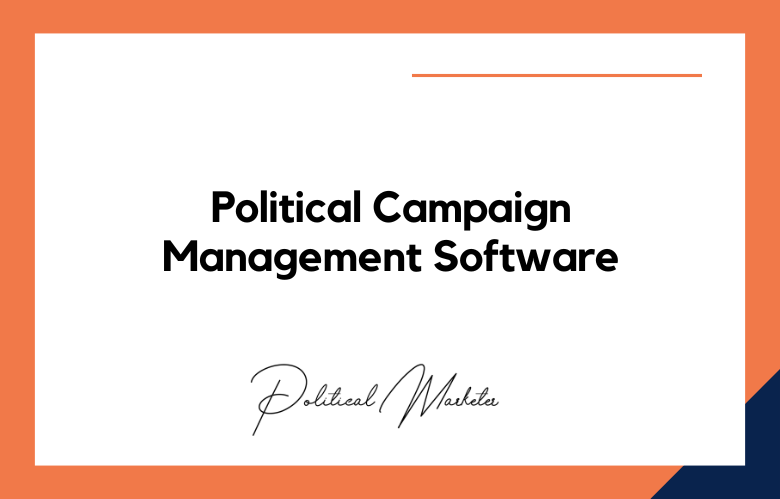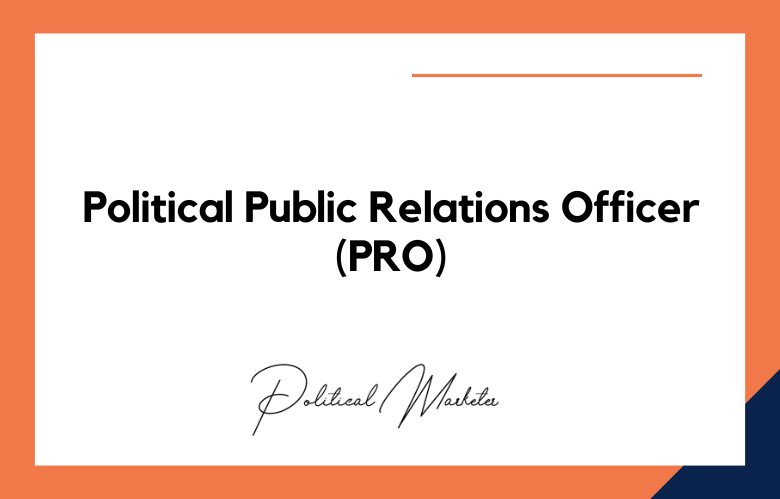Every political leader wants to leave a lasting impression on their supporters. In the quest for popularity, reputation-building plays a crucial role. Political PR strategies can make or break a political career.
Many politicians have failed because they couldn’t manage their public image. Whether you’re a seasoned politician or a newbie, reputation management is critical to your success.
Discuss how political PR strategies shape public perception, build influence, and help politicians achieve their goals.
Political PR strategies are designed to maintain a positive image and reputation for politicians while influencing their constituents.
These strategies require various tactics that reach different audiences with different messages. With the rise of new media technologies, politicians and their PR advisors must constantly adapt their strategies to stay relevant. This article will discuss some of the most common political PR strategies that help politicians build influence and reputation.
The Importance of Political PR in Today’s World
Political public relations (PR) plays a crucial role in shaping public opinion and garnering support for political figures and their policies. Political PR involves a range of communication strategies and tactics that seek to create a positive image of politicians and political parties and advance their agenda.
One of the critical reasons why political PR is essential is because it allows politicians to connect with the public and build trust.
By communicating effectively and transparently, politicians can cultivate a sense of authenticity and credibility, which is essential to winning over voters and securing electoral victories. Moreover, effective political PR can help politicians navigate crises and manage public perception during turbulent times.
The Role of Public Relations in Politics
Public relations in politics play a critical role in shaping the public’s perception of politicians, political parties, and government policies. It is a strategic communication process that establishes and maintains a positive relationship between political entities and their stakeholders.
The role of public relations in politics involves a wide range of tasks, including crafting and disseminating communication messages, managing media relations, organizing events and conferences, and conducting research and analysis.
Effective public relations in politics is crucial for building and maintaining trust between political entities and the public they serve. A well-crafted communication strategy can help politicians effectively communicate their policies and priorities, address public concerns and issues, and garner support for their initiatives.
Public relations efforts can also help political parties build and maintain a positive image among voters, essential for maintaining their competitiveness in elections.
Exploring Different Aspects of Political Public Relations
The field of political public relations comprises a broad range of practices and strategies that aim to promote and maintain positive public perceptions of a political figure or organization.
These strategies can be applied across various contexts, including election campaigns, legislative agendas, and public policy initiatives. Within this dynamic and ever-changing realm, several different aspects of political public relations warrant exploration and analysis.
One critical aspect of political public relations is messaging. Effective political messaging requires a deep understanding of the target audience and a clear and compelling narrative that resonates with their values and concerns.
Successful political messaging also involves carefully crafting key talking points, using simple and accessible language, and prioritizing consistency across all communication channels.
The Growing Influence of Digital Political PR
In today’s digital world, political propaganda can spread alarmingly and influence public opinion with just one click. Political actors have recognized digital political PR’s importance in shaping public opinion and are increasingly investing in digital campaigns to sway voters.
With the internet and social media at their disposal, political organizations can now effectively communicate with a larger audience and disseminate their message to a broader range of demographics.
Digital political PR campaigns have become increasingly popular recently, especially during elections. Technology and data analytics use in political campaigns has become a standard component.
By utilizing technology, political parties can target specific demographics and personalize their message to gain the support of individuals who are more likely to vote for them. Digital tools offer advantages over traditional advertising methods, as they can reach a much larger audience at a lower cost.
Best Practices: 7 Golden Rules for Political PR Success
Political PR is promoting a political candidate or party through various communication channels. PR success in the political arena requires an effective and efficient strategic plan.
Several fundamental principles must be followed to ensure Political PR success. Below are seven golden rules to help guide Political PR professionals.
Know your target audience:
Understanding the needs and expectations of your target audience is critical when it comes to shaping any political communication.
It is imperative to do thorough research, analyzing the demographics and psychographics of your audience, to craft your message in a way that resonates well with them.
Be transparent:
Honesty is the best policy when it comes to Political PR. Being transparent about the political campaign’s goals and objectives gains greater audience trust.
Build trust:
Political PR is all about building trust with your target audience. This means ensuring consistency and coherence in your messaging by using credible and reliable information.
Establish clear goals:
The desired outcomes of the Political PR campaign would vary from one candidate or party to another. It is essential to establish clear-cut goals which can help guide all communication efforts and messaging.
Develop a strong brand:
A Political PR campaign is about building a personal brand for your candidate or party. Creating a solid brand identity is critical to maintaining consistent messaging and staying true to the campaign’s objectives.
Monitor social media channels:
Social media platforms are essential for political candidates to reach their target audience in today’s digital age. Political PR professionals must monitor these channels carefully to identify any negative feedback or backlash and address it promptly.
Keep testing and tweaking:
Political PR is an ever-evolving process. Campaigners should continuously test, analyze, and refine their messages and strategies throughout the campaign to ensure optimal success.
Getting Political PR right is a challenging task and requires a lot of hard work and strategic planning. By adhering to these seven golden rules, political professionals can set themselves up for success in Political PR.
The Significance of Public Relations in Political Campaigns
Public relations play a crucial role in political campaigns and can even determine a candidate’s success or failure. Public relations strategies can help candidates effectively communicate their message, connect with voters, and ultimately win over their support.
One key aspect of public relations in political campaigns is crafting a solid and compelling message.
Candidates must develop messaging that resonates with voters and communicates their platform and values. This message must be consistently displayed across all communication channels, from speeches and debates to social media and advertising.
In addition to messaging, public relations also involves building relationships with key stakeholders, such as journalists and influencers.
Through targeted outreach and engagement, campaigns can secure positive media coverage and endorsements, which in turn helps to elevate the candidate’s profile and gain more comprehensive support.
Critical Components of Political Public Relations
Political public relations (PR) is a vital aspect of modern-day politics. Key components of political PR are critical stakeholders, communication strategies, and reputation management.
The primary goal of political PR is to establish and maintain a good reputation for politicians and public officials while promoting their interests.
Effective political PR reinforces trust in the government, builds support from the public and stakeholders, and helps politicians navigate political upheavals.
Critical stakeholders are individuals or groups who can significantly influence political outcomes.
The media, interest groups, and the general public are examples of stakeholders who are critical to the success of political PR. The media plays a crucial role in shaping public opinion, so politicians must develop a strategy to build a positive relationship with them.
Interest groups advocate for specific issues, and politicians must collaborate with them to address concerns while ensuring accountability. The general public constitutes the electorate and ultimately judges political outcomes; their opinions matter, and politicians must engage them effectively.
How Digital Platforms Are Shaping Political PR Strategies
Digital platforms have become essential to our daily routines in today’s fast-paced world. These platforms have revolutionized how we share and consume information, from social media to digital news outlets.
As a result, political PR strategies have also adapted to this changing landscape. Digital platforms have become a critical tool that political PR practitioners leverage to shape public opinion and drive conversations.
One of the main ways digital platforms shape political PR strategies is through social media.
With platforms like Twitter, Facebook, and Instagram, political parties and candidates can quickly and easily communicate their ideas, opinions, and policies with millions worldwide.
Social media can also target specific demographics with tailored messages, helping strengthen their campaign.
Effective Crisis Management in Political PR
Effective crisis management in political PR is essential for political figures, as it can make or break their reputation and public image.
In a world where social media and the 24-hour news cycle reign supreme, it is crucial to have a well-prepared crisis management plan in place, which can help alleviate negative fallout and minimize damage to a politician’s public perception.
One of the critical elements of effective crisis management is to respond promptly and appropriately to any potential crisis.
This requires having a pre-established crisis management team that can quickly assess the situation and formulate a plan of action.
The team should include individuals who deeply understand the political landscape, legal procedures, public relations, and communication strategies that can guide swift and decisive action.
Building a Positive Image: Strategies for Political PR Success
Building a positive image is essential for any politician seeking political PR success. Several strategies can be employed to create a positive impression that resonates well with the electorate.
One effective strategy is to develop a brand that is easily recognizable and relatable to the public. The brand should reflect the politician’s values and be consistent across all communication channels.
For example, a politician who champions environmental protection could develop a brand that reflects their ecological commitment, such as using a green leaf as part of their logo.
Another strategy is to engage voters through social media platforms. Social media is a powerful tool for connecting with voters and disseminating messages.
Successful politicians use social media to share their views and engage with voters in a way that resonates with them. They also use social media to promote their achievements and to keep the electorate informed on their activities.
Conclusion:
Political PR strategies are essential for building reputation and influence. The strategies involve crafting the right message, rebutting negative propaganda, building public trust, engaging audiences, and partnering with the media.
These strategies are critical to any political campaign. By following these strategies, politicians can build their positive image, leading to better influence.
Political leaders must understand the importance of PR, and with these strategies in place, it becomes easier to achieve their goals. A positive image can help them build a lasting legacy and a loyal fan base.
Political PR strategies are critical for building influence and reputation for politicians. Messaging, media relations, crisis management, thought leadership and volunteerism are only a few examples of the many different strategies politicians can use to build their image.
By consistently using these strategies, public personalities can build trust, influence, and reputation, which are precious assets during political campaigns and elections.
These strategies are vital in the public domain as they can support a candidate and align them with the views of their community, supporting the concept of democracy.
Frequently Asked Questions (FAQs)
What is political public relations (PR)?
Political PR is the strategic communication process used by politicians, parties, or campaigns to shape public perception, build trust, manage reputation, and influence media narratives.
Why is PR important in politics?
PR helps build credibility, handle crises, gain positive media coverage, shape voter opinion, and position leaders as trustworthy and competent.
What are the key components of a political PR strategy?
A political PR strategy includes media outreach, message development, public image management, crisis response, content creation, and stakeholder engagement.
How do politicians build a strong public image?
Through consistent messaging, media appearances, public service visibility, values-based communication, and maintaining an authentic, relatable persona.
What role do press releases play in political PR?
Press releases inform the media of announcements, positions, events, or responses, helping shape headlines and public discourse.
How is digital PR used in modern political campaigns?
Digital PR involves using online platforms—social media, blogs, email, and influencer partnerships—to distribute narratives and manage reputation.
What are earned media vs. paid media in political PR?
Earned media is free coverage from news outlets due to PR efforts; paid media includes advertising or sponsored content with controlled messaging.
How does media training help political leaders?
It equips them with skills to handle interviews, press conferences, and hostile questions, ensuring message consistency and confidence.
What is political reputation management?
It’s the ongoing effort to monitor, influence, and improve how a political figure or entity is perceived across media, public, and digital channels.
How can politicians recover from PR crises?
By issuing transparent responses, taking responsibility if needed, pivoting the narrative, engaging positively with the media, and using crisis PR experts.
What is message framing in political PR?
Message framing involves presenting information in a way that aligns with voter values and emotions, increasing relatability and resonance.
How do PR teams handle misinformation or fake news?
By issuing clarifications, presenting facts, engaging with trusted media, using digital monitoring tools, and mobilizing supporter networks.
What is the role of a political spokesperson?
A spokesperson communicates official positions, handles media inquiries, delivers press statements, and protects the image of the political entity.
How do influencers or celebrities impact political PR?
Their endorsements or criticism can sway public perception, especially among younger voters, amplifying or damaging reputation.
How is public sentiment tracked in political PR?
Using tools like media monitoring, social listening, polls, sentiment analysis, and focus groups to assess how messages are received.
What are grassroots PR efforts in politics?
These involve local-level communication, community engagement, and bottom-up storytelling that reflects real voter concerns.
Can PR help in coalition-building or alliance management?
Yes. PR facilitates messaging alignment, shared narratives, public announcements, and reputation positioning for coalition partners.
How do visuals and branding contribute to political PR?
Logos, slogans, color schemes, and visual storytelling reinforce political identity and help in consistent, memorable messaging.
What is proactive vs. reactive political PR?
Proactive PR plans and shapes narratives ahead of time; reactive PR responds to unfolding events or crises to manage perception.
What are long-term strategies for political reputation building?
Consistent public engagement, transparent governance, thought leadership, value-based branding, and positive media relations build enduring political trust.










